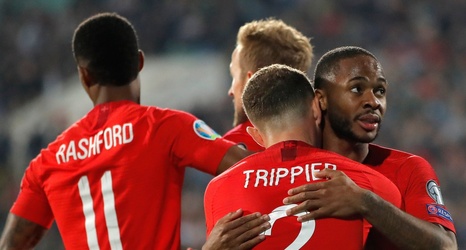Vadim Ghirda/Associated Press
MANCHESTER, England — Raheem Sterling is many things: arguably the outstanding English player of his generation; a leading light for both his club, Manchester City, and his national team; an articulate, considered and urgent voice on the issue of racism both within soccer and outside it. He is not, and he should not be expected to be, an expert on the intricacies of Bulgarian politics.
On Tuesday, a few hours after Sterling and his England teammates were subjected to incessant racist abuse during a European Championship qualifying game against Bulgaria in Sofia — abuse so bad that play was halted, twice, to warn the crowd that the match might be abandoned if the abuse continued; so bad that Bulgaria’s captain, Ivelin Popov, pleaded with his own fans to desist; so bad that a number of England’s multiracial back room staff members were visibly upset by it; so bad that the result, a 6-0 England win, will be nothing but a footnote — Sterling tweeted a message of thanks to Bulgaria’s prime minister, Boyko Borisov.
